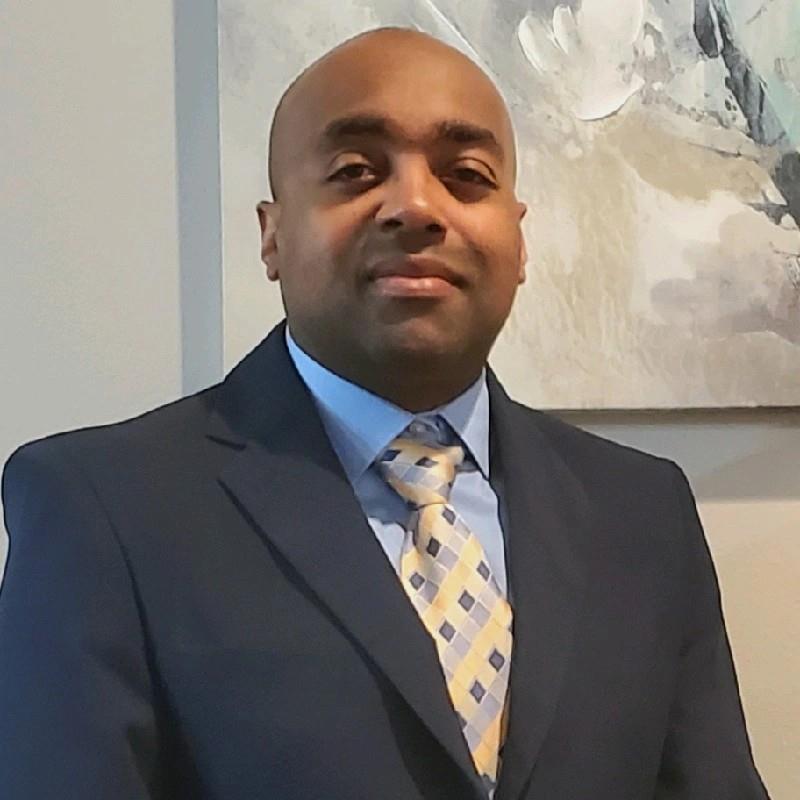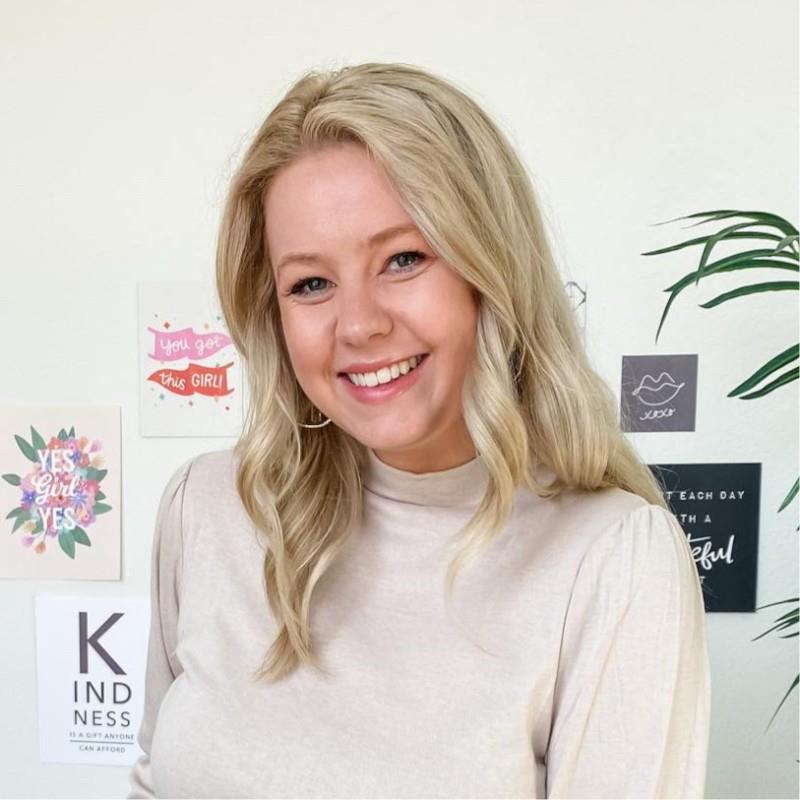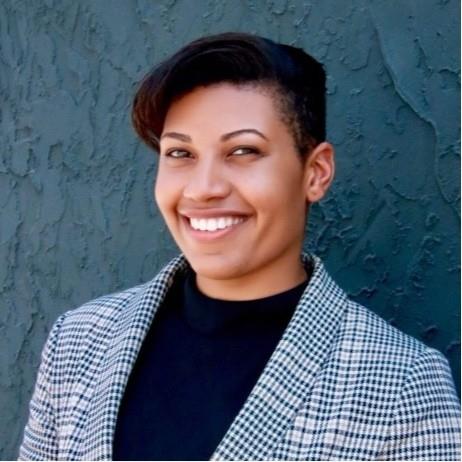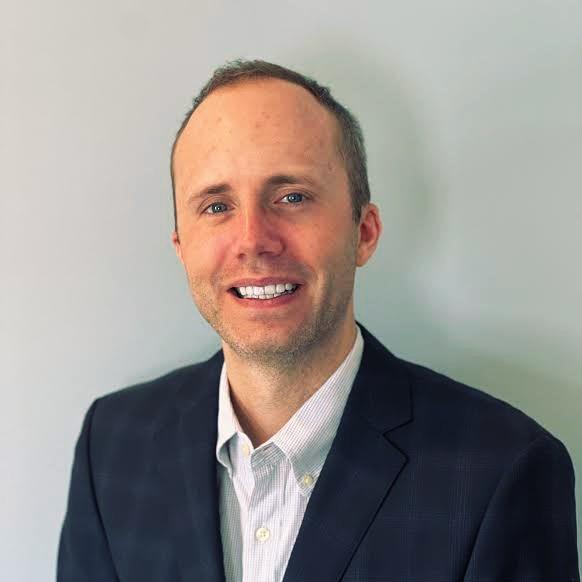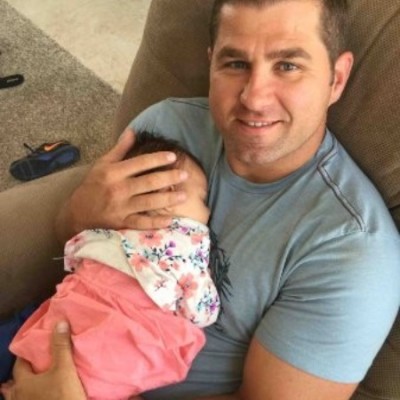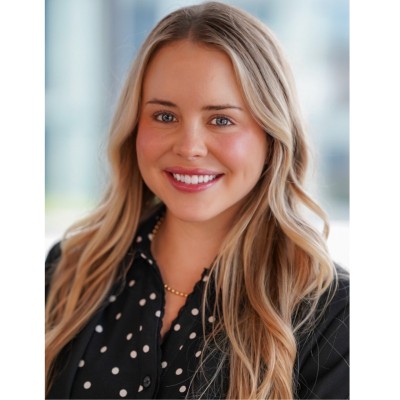Master the art of sales in the medical field and unlock your true potential as a representative. Gain the essential skills that inspire customers to say yes, paving the way for success and making a lasting impact in healthcare. Welcome to the Medical Sales podcast. Today, host Samuel Adeyinka is joined by special guest, Andy Olen. In this episode, he discusses the essential sales skills required for success as a medical sales representative. Discover Andy’s expertise as he guides high-performing individuals, executive sales leaders, and professional athletes through his coaching and training organization. Through his book, “The Trilogy of Yes,” Andy empowers salespeople to inspire customers to say yes. Tune in now and unlock the sales skills that will propel your career in medical sales.
The CE experience for this Podcast is powered by CMEfy – click here to reflect and earn credits: https://earnc.me/0ArD2r
—
Watch the episode here
Listen to the podcast here
Sales Skills You Will Need As A Medical Sales Rep With Andy Olen
In this episode, we have with us another special guest. He goes by the name of Andy Olen. He leads a sales and leadership training organization where he coaches and works with high-performing individuals, executive sales leaders, and professional athletes transitioning from their previous careers. He authored the book, The Trilogy of Yes, to help salespeople inspire customers to say yes. He hosts the podcast The Sales Warrior Within, where he coaches high-potential leaders and is also a keynote speaker and skills trainer.
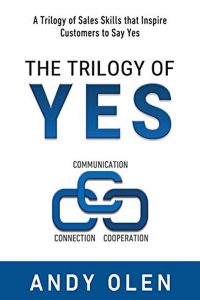
He has many years of experience in sales leadership in healthcare. I’m happy to have him on the show, but I am not going to spoil it by giving you more. For the rest of it, you’re going to have to read the interview. As always, we do our best to bring innovative guests that are doing things a bit differently in medical sales and truly making an impact. Thank you for reading.
—-
Andy, how are you doing?
I’m doing great. It’s good to see you.
Why don’t you tell everybody who you are and what you do?
I lead a sales and leadership training organization. I coach and work with high-performing individuals, senior executives, sales leaders, transitioning special operators who are leaving the military and going to their civilian careers, and also professional athletes who are transitioning from their professional athletic careers going into the next 50 years of their lives. I love working with high performers. I love training and working with sales teams. All of that came after many years working in healthcare, marketing, sales, and leadership positions.
It’s great that you’re on the show because a lot of people assume that companies have their own training, especially when it comes to their sales teams. As long as you get hired by a good company as far as sales training, you’re done. Give us a little bit of insight into what’s going on and why it’s important to have people in the position that you’re in.
During the years I spent in sales leadership roles and healthcare, I did have a bird’s eye view of what was happening in terms of training salespeople and sales teams. What’s happening where companies in healthcare do a great job is product training and on training their teams to communicate the clinical safety and efficacy aspects of their technology.
However, it’s not a core competency within most corporate healthcare training teams to train in sales skills. That’s where a lot of organizations will outsource that. Interestingly, there are a couple of big training modalities and training frameworks out there that they often go to. You may have heard of a few of these, either spin selling or the challenger methodology. These are very good. My work is very complementary to what those two organizations do.
However, these are big change management programs and significant investments to go with challenger and spin. You also have to rewire the way salespeople think, act, and behave. That can be challenging, especially with all the demands that sales teams have of hitting their quarterly numbers or adapting to an ever more difficult environment. There is a lot of outsourcing of the sales skills aspects, and where I fit in is I step in and, at a lower cost and a much more tailored or customized experience, help sales teams and training groups deliver sales skills training that’s simple, impactful, and can be executed right away without a whole rewiring of someone’s wholesale approach.
That helps us understand what the landscape looks like. One thing that my readers might be interested in reading is the companies they work for outsource the sales training anyway. There has always been a pocket for individuals like yourself, but let’s talk about that for a second. As a salesperson, how important is it to always be looking for education around sales training? Do you feel that as a salesperson, once you kind of learn it and as long as you’re keeping it into practice, you’re done, or do you see it as something that you know you should be actively looking for ways or even more innovative ways that sales training is conducted?
It makes me think about the term empowerment. It’s a great term that’s thrown out a lot, but what does it mean? The definition of empowerment is to focus on strengthening your own skills in order to be able to control your own destiny. As a salesperson, the way I think about that is I want to control my own destiny. I want to hit my numbers, exceed my numbers, walk across the stage, get the president’s award, and get the big crystal trophy that I can put up in my office, and I want to be in control of my own destiny.
Therefore, I need empowerment. The way that I empower is by continuing to evolve and strengthen my sales skills and approach. It’s incredibly important. One of the most dangerous things a healthcare sales professional can do is when he or she lands the dream job and says, “I don’t have to change. I got it. I’ve been validated by getting this great job at this med device company, this diagnostic company, and I don’t have to ever change again.” The reality is you have to change every day. Otherwise, the person that is changing, evolving, and adding more to their sales armamentarium is going to pass you right by. Great salespeople are always looking for that new edge and muscle to develop.
Think about the great athletes that we all know and love out there like Lewis Hamilton in racing to Kobe, LeBron, Tiger Woods, you name it. These individuals never were satisfied at the top. They always needed to take that next step. Salespeople have to be continuing to evolve their skills in order to get to the top and then stay at the top as well.
You see it as even the most veteran sales rep should be looking for training outside of the organization that they work for.
Here’s a stat for you. In my experience, and I pull the sales teams that I work for specifically around negotiation training, you would think most people in healthcare, their expert negotiators, are going up against doctors, big procurement agencies, tough economic customers, IDNs, GPOs, and big hospitals. You would think these are great negotiators. The reality is 2/3 of salespeople in my data in healthcare have never had a formal negotiation course.
That’s pretty striking to think, “You’ve made it to the top of the sales pyramid in many ways, but you’ve never learned how to negotiate.” There’s an example where a lot of companies are saying, “We need to get better negotiation skills for our team, especially in this higher inflation environment while our customers are trying to drive pricing down. We better be savvy negotiators so we can hold revenue and margin. We have a gap. Our team hasn’t been trained on this. Let’s give Andy a call. Let’s have them come in and work with our team to develop this muscle.” That’s even where I see very tenured salespeople say, “I’m a lot more confident in negotiating. I never have been. I can go out and execute immediately with these very simple practices.”
Let’s talk about negotiation for a second. It’s an obvious thing that every sales professional should understand how to negotiate. Talk to us a little bit about what it looks like when you’ve worked with a team that didn’t have negotiation as part of their arsenal and then, after training, you saw some big differences. What do those changes look like? Give us maybe 2 or 3 stories.
Two quick stories, I was working with a group from one of my favorite clients, which is a medical aesthetics company out of Long Beach, California. I was training some of their international team members from all around the world. The next morning after the training, I deliver what’s called a “Yes, if” training. You can say yes to every customer request if the customer’s also willing and ready to trade value for value with you. I got a note from one of the sales reps from Hong Kong who said, “I got on the phone with one of my customers after your training, and I, ‘Yes, if’ into a multisystem deal and felt good about it.” Literally, within hours, this person was able to take the simple practices.
We’re not boiling the ocean with these negotiation skills. These are simple actions you can take and immediately transform into successes. Another company of mine trained about 500 people in their sales organization on this. Right away, you saw a pop in the average selling price. You saw a different confidence and a swagger. Keep this in mind. The best salespeople run toward the negotiation. The reality is that negotiations are often conflict-filled events and there are trained negotiators on the other side of the table from the salesperson. They’re trying to bring prices down.
[bctt tweet=”The best salespeople run toward the negotiation.” username=””]
They use conflict, chaos, and crisis to do that. When a salesperson has more confidence, they’re better communicators and they think about forming a cooperative negotiation, they see results immediately. You see these confidence scores go up. Confidence leads to stronger negotiation outcomes for a company in healthcare leading to higher price margin preservation. The return on investment for organizations is big to have an upskilled sales force, specifically around negotiations.
Talking about these sales teams, you’ve seen a lot. Before we do that, I want to color in your history so people can understand who they’re reading here. Walk us back to your first medical sales experience. What position did you have, and what were you doing in that role?
It takes me back to when I was first exposed to healthcare sales and healthcare companies. I was an MBA student at the University of Wisconsin-Madison. I went to a corporate presentation during my first year of business school. I remember sitting in that room and they showed a video of a grandfather talking about how he couldn’t play with his grandchildren anymore because his heart was beating too slowly and he wasn’t getting enough blood and oxygen pumped to his muscles. He was lethargic and tired. He saw an electrophysiologist, received a guidance pacemaker, pace-up his heart rate, overcame his bradycardia, and it changed his life. He was crying and talking about how he engaged then with his grandchildren and how much joy that brought him.
When I saw that, I’m like, “I got to be in this industry. Here’s an industry where we can do things cool on the sales and business side and we can also positively impact people.” I started after a summer internship as a compensation analyst. I was writing comp plans and sales incentive plans for the sales organization. That changed into a big change management effort I worked on when Johnson & Johnson tried to buy the company back in like 2002. That didn’t work. The company got split out. I ended up going to a company where I soon then ran the Zion drug-eluting stent launch as a US marketing manager. We got to market leadership in 90 days. I spent a lot of time in marketing, and they said, “Good job in marketing. We’re going to ship you off to Canada.”
I said, “It sounds good.” I moved to Toronto and was the national sales manager there. I went from sales operations to marketing to sales, and then from there to General Manager in Canada and Latin America, moved around a bit, and ran a $1.5 billion business. It’s been a wonderful journey and rewarding. In 2019, I started my own company because I wanted to get back closer to helping salespeople and sales leaders upskill and live and work within my passion, which is teaching and also presenting, communicating, and training as well.
You’ve led sales teams. You’ve seen the good, bad, and ugly. Tell us what are the top three things that you see sales professionals consistently do well. When you see this happen, you know they’re going to do well, and also three things on the cons side.
Every great salesperson is hyper-curious and remains curious. For example, we’re now living in a high-inflation, high-interest rate environment. The curiosity mechanism inside a top salesperson is going to say, “What does this mean for me, my customers, and my products? Let me learn more about what a hospital’s going through with higher interest rates. Their bonds are adjusting because it’s a variable interest bond. That tightens the P&L. They’re going to have to cut costs.”
[bctt tweet=”Every great salesperson is hyper-curious and remains curious. ” username=””]
They’re probably going to come to my company as a vendor and say, “We needed to cut our costs. How am I going to negotiate my way through that?” You can see that curiosity being aware of what’s going on. Studying it is critical when there are big headwinds facing the salesperson. A great salesperson is hyper-curious. Second, we talked about it earlier, always curious, as one of my friends and others call it, having a growth mindset.
“I want to grow and improve.” I link it to empowerment because that’s a way to control my own destiny. That is number two. The third is this, and let me give you an analogy here. When it’s Friday at 4:00. You’re driving home from your last call or last appointment. Maybe you’re at 100% or 101% to quota, but there’s something inside you that says, “I want more. I’m going to stop at 4:30 and then 5:00 at that last account. I’m going to see if the doctors and customers are there. I’m going to make that one last stop.”
It is because on Friday at 4:00, it could be, “I’m going to drive home, hit the golf course, grab a drink,” but the great salespeople go to that one last customer stop before the weekend starts. They’re probably after it on Saturday and Sunday, getting all their administrative work done so they can hit the road again Monday morning.
Those are three things that I see great salespeople doing. Those are three challenging areas. To answer the second part of your question, it’s a lot of the inverse of that. It’s, “I’ve been successful for the last three quarters. I’m going to be successful for the next three quarters.” It’s that hubris or certainty. Because I’ve created success, I know what I’m doing that leads to then laziness in a way or a lack of internal drive to get better. I always would get worried about salespeople saying, “Why are you pushing me hard to get my number? I’ve gotten all these great results in the last three quarters.” I understand that, but when you start to get soft when you don’t push those extra few feet or yards, that’s when a competitor can pass you by.
That slow down or that lack of fire is a challenge. Second, a lot of salespeople think that they can win and achieve by doing it all themself, but that’s not possible anymore. Sales in healthcare is a team sport. You have great leaders around you who can co-sell with you. You have great marketers who can engage with you. Your customers are usually multi-level customers and horizontally and vertically diverse. You need a team around you to get ready for a sales call to prepare to get your training done. Lean on your teammates and bring them into the sales process. Those who are lone wolfs out there still continue to struggle. This is a team sport. You have to build that muscle to sell as a team.
You have this framework that you use your help sales professionals grow. You can’t give us your stuff here. There’s a challenger sale, spin selling, or go-givers and give more. There are all these different philosophies. A lot of professionals are hard-pressed to truly understand what a fundamental framework of selling is and how to improve that look. Give us a little insight into what that looks like.
I’m happy to give you some of the insights here because I want your readers to be able to take these skills and work on them right away. My goal and my mission are to help over one million people upskill themselves in sales and to feel more confident to be proud to be a salesperson. Here are a couple of things. We’ll talk about negotiations and presentation skills, which are also a big need from a lot of my customers and within the healthcare industry.
My approach and framework that I developed after many years and within the experiences I had in healthcare sales is called the “Yes, if” mindset. What this sounds like is when a customer asks me for a price reduction on my product, “Yes, I can give you a price reduction if you give me more volume. Yes, I can give you a discount if you give me another year on the contract.”
This is a trading mentality. What I see a lot of salespeople doing in negotiations, especially when a sales rep is going up against a very powerful doctor or procurement organization, is they acquiesce. Acquiescence is saying yes without any protest or without asking for something in return. It sounds like this. If a customer asks me for a price, “I can give you a price discount.” “Can you also give me a rebate at the end of the year?” “Yes, I can give that to you as well.” When you only say yes and don’t ask for anything in return, the customer is going to keep asking and getting more value from you. The salespeople in healthcare feel that they need to say yes in order to be liked and move closer to getting the deal done.

The reality is they get taken advantage of. That’s where revenue, price, and margin come down. A way to say, “Yes, I can do this for you, Mr. or Mrs. Customer or Doctor, if you can also give me something of value in return.” What I encourage everyone I train in “Yes, if” and your audience as well is to start trying that now if you’re having a negotiation even in your personal life. I negotiate with my kids all the time, “Yes, you can go out and hang out with your friends if your homework is already done. Yes, you can do this if you can do that.” For me, it’s this cooperative trading environment where everybody wins, but value and equity are maintained as well. If you think about this, for healthcare salespeople, you want to, through negotiation, create a triple-win outcome.
The salesperson, customer, and the company that the salesperson is for want to win a good deal as well. If you can create that triple-win outcome through a “Yes, if” cooperative negotiation, then you’re well on your way to doing that. You can find my courses at Learn.AndyOlen.com and dive into those. There’s a whole series on negotiation training around the “Yes, if” mindset. Second on presentation skills, great salespeople are able to stand up, confidently communicate and persuade and motivate a customer to follow him or her. When you have that presentation excellence and that confidence in front of customers, that passion, optimism, and credibility can translate to incredible results.
I spent a lot of time with sales teams and training them on how they can upskill their presentation approaches. It’s through simple practices like the rule of three, storytelling, using slides of scaffolding, a lot of very simple best practices, and then reps in doing it. It is getting out there and getting feedback on doing it. It’s a lot of fun. Those courses are available on my website as well.
You dropped the rule of three. I can only imagine how many people are wondering, “What is the rule of three?” Why don’t you share with us what the rule of three is?
The rule of three is all around us. It’s our brain can only take on three pieces of data or information at a time. Our brain is built because there’s a rhythm to 1, 2, 3, and A, B, C. If there’s a rhythm to three, there’s an ability for our brain to remember three. Let’s play to the way that we’re already naturally wired. If we’re able to take on and remember three things as a salesperson, let’s share the three most important things in that presentation with our customer. “I’d like to talk with you about 1, 2, and 3 or A, B and C. Let’s start with one.” If you think about the rule of three, it’s everywhere. Think about how we were trained as kids in North America and what we were trained to do if we caught on fire.
Stop, drop, and roll.
That’s the rule of three. If we ever are on fire, and I hope none of your readers ever are, what is the emergency number that we dial on our phone?
9-1-1.
Those are three numbers because we can remember three. Once we recover from our near miss or our fire experience, there’s probably an interesting story to tell. A story has a beginning, a middle, and an end, the rule of three. The rule of three is all around us, like stop lights, red, yellow, green, Starbucks has a tall, grande, and venti size. It’s all around us as we present and share information, especially when our pharmaceuticals, devices, diagnostics, informatics, and information system technologies have many cool benefits, a salesperson has to consolidate, prioritize the three main things, communicate effectively, and should resonate with customers.
I’m going to switch gears a little bit here. I want you to address something that’s been mumbled about before, introverts and extroverts. The automatic notion when people hear that is sales professionals are extroverts, plain and simple. However, if you dig a little deeper, you’ll find that there are quite a few sales professionals out there that are introverts and rather effective. Talk to us a little bit about your take on this. First of all, do you even believe that’s true? What would you have to say about being an extroverted person versus being an introverted person and having the desire to be a medical sales professional?
In medical sales, we welcome all introverts and extroverts. You can be wildly successful no matter what your personality type is, and you have to be self-aware of who you are so you are balanced in your sales approach as well. My wife is very extroverted. She is a sales manager in healthcare. If you do the Clifton StrengthsFinder, she’s WOO. It’s like the hyper extrovert. She wants to be at the dinner in the middle of all the conferences, and her energy level of engagement is nonstop. It’s a wonderful skill for her. I’m nowhere near that. I’m extroverted, usually around people I’m comfortable with or people who I’m familiar, the marketplace, industry, or environment with.
I can be a little bit more introverted as well because after a while of being at the big trade shows, I get tired, and it’s, “I need to take a break and need some alone time.” Introverts are wonderful listeners. That’s a wonderful selling skill. Introverts allow the customers to speak and share. The more you can get a customer to share with you what their goals are, what their needs are, and what their objections are, you can tailor solutions for them quickly. Introverts have a wonderful superpower of usually being great listeners.
Extroverts then have to work on that skills like, “I know I can be high energy. I know I can talk. I can fill all the silent space with energy and insight,” but you might miss some of the things that a customer’s saying. You have to then train yourself to be a good listener as well and ask thoughtful questions. Introvert, although their superpower is listening, processing, and thoughtfulness, probably has to push outside of their comfort zone a little bit, especially when it’s going to knock on the door of a new customer that they don’t know may feel a little bit funky or they have to get their energy up to do it because it’s not natural for them to step out into that social space.
You got to push yourself there and overcome some of that introverted feelings to be able to be successful, open up new doors, generate leads, and prospect. It does take skills on both sides, but my experience is great salespeople can be extroverts and introverts. You have to be passionate about this field and you’re going to be successful.
Talk to us a little bit about when you are someone that wants to get into the medical sales profession. Now, you’re working with sales teams and sales professionals. What about those that want to get in? What should they be thinking about as far as themself? What should they know that they need to demonstrate well to be taken seriously as a medical sales professional? This is a little bit further than the scope of selling, but I’m sure you’ve hired quite a few leaders and sales professionals before and have been part of the hiring end process. What would you say that someone that wants to get into the industry absolutely needs to have?
The first preconceived notion, barrier, or block you have to get rid of is if you look at yourself and say, “I don’t have healthcare sales experience. Therefore, I can’t get in,” you got to get rid of that.
You’re done.
If you put that wall up in front of you that since you don’t have the experience, you can’t do it, then you’re not going to do it. You got to remove that wall. Some of the most successful salespeople started in B2B selling. They sold copy machines, printer solutions, and phone systems. They started as an inside salesperson. My wife is a super successful sales manager. She sold mortgages and loans for a bank, cold calling people at 5:00 in the evening. She cut her teeth doing those types of roles. Anyone can grab and hold onto an access point to move into healthcare. If you want to do it, the door will be open. You got to go find the doors.
[bctt tweet=”If you want to do sales, the door will be open. You just have to go find the doors.” username=””]
A couple of ways, and this is back to your experience as well, is that pharmaceutical sales coming right out of college is a good starting point. Those are big sales teams, incredible product training, and a big investment in shaping younger salespeople or those out of college. I’ve seen a lot of very successful people make pivots from high-tech industries, automotive industries, and manufacturing industries, and come into healthcare. I’ve seen a lot of folks from the military move from leadership positions in the military to sales leadership positions in operations positions within healthcare.
You can come in from any angle. What you have to do is you have to network to get in. For any of your readers, if you want to network and you’re thinking about getting in, you call or email me at [email protected]. I will open up my network to you. LinkedIn with me at Andy Olen. Check out my website, AndyOlen.com. You’ll find a way to contact me and I will help you with my clients because my clients are always looking for outstanding people.
It’s a tough labor market to find great people. Smart and progressive companies will train people that have shown leadership and success in other industries. In fact, a lot of companies like that because we can teach you our way of how we want you to position our technology and our products. What you have to recognize is if you don’t have healthcare sales experience, you have to think about the opportunity. You’ll have to build new relationships. You don’t bring that book of healthcare relationships or customer relationships with you. That’s okay.
One thing people will have to do if they don’t have healthcare experience is recognize you’re not bringing a full set of healthcare customer relationships with you into this new role. During your interviews, communicate effectively. What is your process going to be and how are you going to go and build up new customer relationships? If you can convince that hiring manager that your relationship-building skills are strong, they’ll say yes to you and you’ve made a good case for yourself. It is such a fun industry. If you want to get in, I’m here to help. Samuel is there to help your whole audience. We want great people in this industry. Get in touch with us and certainly with me. I will certainly open my connections to you as well.
Think about back to your time as a sales leader and being part of that interviewing process. You were probably the last leg of the interviewing process and have the final say. From someone that did not come from medical sales or any kind of medical sales before, what would you say someone did that impressed you the most that came from outside the industry?
I’m working with an individual. I do a lot of work with a group that helps special operators. Navy Seals, Marine Raiders, and Army Green Berets transition from their military service to the next chapter, now a civilian chapter of their life. I’m working with an individual, a very senior Army Green Beret, special ops leader, and he’s making that transition. It’s a unique transition. To answer your question, if he were interviewing with me, what is important for folks like him is to describe their leadership experience.
What I’m looking for in those interviews is if you have leadership experience, you’ve managed teams, dealt with difficult people on your team, dealt with big complex decisions, you have a global perspective, if you have an enterprise mindset that you can demonstrate through examples and successes that you’ve had, then I want you on my team. I can teach you the ins and outs of healthcare.
As you get to a more senior level, it’s about business management more and people management than it is about being a deep subject matter expert. Does it help? It helps. However, at that more senior level, people that have come in have demonstrated, no matter what industry they’re in, that they know how to create change, inspire people, lead and develop leaders, like this individual I’m working with who’s transitioning, he doesn’t realize how valuable his skillset is after 30 years of military service and getting to the very highest of levels, how many companies will want him, even though he doesn’t have either corporate or industry-specific insights.

I’ve already tried to network him with 3 or 4 healthcare executives where I know they’d look at him, look at his resume, and hear his first two sentences out of his mouth and be like, “Please come.” Those are the big things that, as you move up, you got to demonstrate. From a sales rep manager, if you want to keep moving up to leadership positions, you can take on big projects, be successful, inspire people, motivate you’re a clear communicator, can work well cross-functionally, and that you have good business acumen and business savviness skills.
Last question as far as sales training is concerned, where do you see sales training headed? COVID happened. Companies had to cut all types of services that were entertaining for their employees left and right. There are all these whispers about this big recession that’s coming. Usually, things like sales training are the first to go. Think about the future. Where is sales training in general? Where’s it headed?
In healthcare, it may be a little bit more immune to economic ups and downs because people get sick, unfortunately, and people need service and care. Healthcare can be somewhat resilient through an economic downturn. We’ve seen that before. In sales training, the clinical and the product pieces will always be there. I also believe that companies, because of the competitive nature and because of the ever-changing dynamics of the healthcare marketplace, that sales skills is also going to be a part of that curriculum as well. I’m pretty bullish and optimistic over the next years on where things are going, even if we go through some up-and-down macroeconomic cycles. That being said, there are a couple of trends you’ll see.
One is focused on how to gain access to customers as access is being shut down. As you know, a lot of hospitals and healthcare facilities won’t let sales reps in. How do I get in front of that customer? You’re going to have to do it at Starbucks, in the cafeteria, go out to dinner, grab breakfast, or see that person in a different environment. How do I communicate and ask for that time? How do I get that time? There is AIR that I teach. You have to get Access. That’s the A. When you have access, you got to make an impact, especially if you’re asking for a customer’s time outside of their normal hours. I is Impact. R is a Revisit. You got to ask for, in the end, the ability to come back and revisit with that customer.

Those types of skills are going to be very critical. We are also going to see a continued transformation to the sales rep of the future has to be incredibly well-versed in terms of financial insights, financial acumen, and understanding the finances and the headwinds and the tailwinds that their customers are facing. Understand an income statement. Understand how to create an economic utility with the products that they’re selling, and how to also manage Value Analysis Committees or VAC.
There’s a procurement person, the chief medical officer, the doctor, and a few other people like the lawyer the value proposition that’s in front of them from that salesperson’s company is crystal clear. There’s an upskilling that’s going to continue to happen as this environment tightens in terms of access and also gets more complex in terms of the integration between clinical benefits and also economic utility or value utility of the products people sell.
I always think there’s going to be a place for sales training. That’s where negotiation presentation skills are with a very good positive return on investment. Lastly, this virtual world that we all work in is here to stay. Selling through Zoom, Teams, text messages, and informal negotiations, are going to be much more important skills to have while we balance our time in front of customers between in-person moments and virtual moments as well. Virtual is here to stay, and salespeople have to get comfortable selling in this medium as well. I’m optimistic and bullish, but we certainly have a lot of work to do out there.
I would even say that it goes even further than that with social media. It’s become critical as far as a sales professional. You’re paying attention. Everyone can see that these social media platforms like LinkedIn, if you can figure out how to hone in on your message and you’re an expert in your field, you can brand yourself into opportunities that are left and right.
A great shout-out also to the leaders that are reading is that healthcare companies rightfully are very thoughtful about the regulatory, compliance, advertising, and promotion of their technologies because it’s very strict. You got to be very on-label and very compliant. That being said, a lot of healthcare companies don’t want or discourage their employees from talking about their company and products on social media because that could be the Wild West.
Someone could go off-label and show something, and that gets them in trouble. A great area of sales training for healthcare leaders is we need to exploit the power of social and digital media. How do we enable the sales force of 500 people, which could be 500 unique microphones, the unique marketers to use their social media platform to send out positive messages about our products and our companies in their own voice? My client is very empowering with its people. They leverage digital media big time, and their entire global sales team is a megaphone for them. That’s a progressive view. Others have to get there, otherwise, they will lose the full advantage of social media. There’s a balance between being compliant and allowing your teams and people to be able to share what needs to be found.
It has been fantastic to have you on the show. Anything else you want to share with our audience? Remember, our audience is people that want to get into the industry, in the industry, and those leading the way.
One last tip for salespeople new to our industry wanting to get in or even very tenured is there are three foundational sales skills that I’ve seen great salespeople have. I’m working with sales teams in Indianapolis and everywhere in between. That the three sales skills that inspire people to say yes are connection, communication, and cooperation. These are the three foundational sales skills of healthcare of all of selling. What I’d encourage your readers to think about is taking an inventory of a couple of the great relationships you have in your personal life.
[bctt tweet=”For salespeople new to our industry wanting to get in or even very tenured, there are foundational sales skills that great salespeople have. It’s connection, communication, and cooperation. ” username=””]
My guess is that the communication between you and this other person is fantastic. You are connected, have a lot of the same values, and cooperate to solve problems. Think about that personal relationship and then ask yourself, “How do I take all the greatness and the things that work regarding connection, communication, cooperation, and my personal relationship, and then bring that over into how I sell and build relationships with doctors, procurement folks, technologists, and healthcare providers?” You’ll find that if you can create excellence in connection, communication, and cooperation, then you are going to be well on your way to an incredibly successful career in healthcare.
We’re going to switch gears for the last time. I’m going to ask you a series of four questions. It’s our lightning round. Are you ready?
Bring it. Let’s go.
The best book you read.
I read a couple of them. The one that comes to mind that was impactful is Company Of One by Paul Jarvis. As a small business and entrepreneurial folks like us, it is all about how you can prosper being on your own or with a small team. It’s a great book for those thinking about entrepreneurial efforts.
Best movie or TV show you’ve seen.
I’ve watched Better Call Saul and finished that.
That show blew my mind. That was a good one.
Vince Gilligan, the writing, cinematography, characters, and how Bob Odenkirk didn’t win a single Emmy award are criminal. Great job.
Breaking Bad was groundbreaking TV and Better Call Saul stepped it up. Best meal you’ve had.
My wife and I were heading out to New York City. We’re going to a French restaurant in TriBeCa. I am going to put all my bets that that French meal, if it’s a 3 or 4-course meal when we’re going to get a nice bottle of wine, that’s going to be the best one that I’ve had.
I’ve never had a future meal be an option. Last question, the best experience.
That’s an easy one. My daughter verbally accepted and committed to Auburn University to swim and study there. She did five weekends in a row. Five official campus visits for her and, ultimately, War Eagle. She’s going to be an Auburn Tiger. I’m super proud of her. We are going to Auburn and making that official is a big deal for the whole family.
Is she the last one? How many do you have?
Ironically, she’s the middle one. The way recruiting works for athletes is it starts after their sophomore year, which is early. She’s a junior now. Her older sister, the senior, is going through what I’ll call the more traditional approach to applying to colleges like I did. The older sister is going through the process of applying, but her younger sister knows before because swimming’s accelerated that a little bit. It’s exciting. The freshman or the little guy is watching his two big sisters do some amazing things.
It was wonderful to spend time with you. Please tell us where people can find you and your work.
AndyOlen.com is my website, and that will take you right into my learning portal if you want to jump into any of the online courses. My book is The Trilogy of Yes, which talks about connection, communication, and cooperation. I also have a podcast, The Sales Warrior Within. If you like the style and the approach, simple actions that lead to big results, The Sales Warrior Within is a great resource for you.
We look forward to hearing and seeing more from you.
Thanks a lot. It’s great to be on the show.
—-
That was Andy Olen. There are many pros of wisdom shared. I hope you were taking notes. Some of you might be reading this episode and thinking to yourselves, “I want to be in healthcare. I want to sell.” If you’ve been reading this episode or any episode for any amount of time, then you already know what I’m going to say. Stop wondering, wishing, and waiting. Go to EvolveYourSuccess.com. Some of you have been trying to get an interview and it’s not happening. Some of you have been in interviews and you cannot seem to get an offer to save your life, and some of you have no idea where to start, but you know you want to be in medical sales.
Fill out our application, have a conversation with our intake coordinator and account executive, and let’s get you into a position that will completely change your life. As always, we do our best to bring you guests that are doing impactful in innovating things inside the medical sales space. Make sure you tune in for another episode.
Important Links
- Andy Olen
- The Trilogy of Yes
- The Sales Warrior Within
- Learn.AndyOlen.com
- [email protected]
- Andy Olen – LinkedIn
- Company Of One
About Andy Olen
 Andy Olen’s Sales and Leadership Training along with his High-Performance Coaching efforts are rooted in his 20+ years of professional experience.
Andy Olen’s Sales and Leadership Training along with his High-Performance Coaching efforts are rooted in his 20+ years of professional experience.
Andy’s led sales and business teams around the world, negotiated contracts worth over $400,000,000 dollars, and knows how to deliver programs to teams where the action and impact is immediate.
Real-world solutions for individuals and teams seeking to be best in class.
Andy is an author. He wrote The Trilogy of Yes – a guide for salespeople on how to use Communication, Connection, and Cooperation to inspire others to say YES.
Andy has spoken on the TEDx stage and regularly shares his thoughts on the podcast The Sales Warrior Within.
Andy’s corporate career spanned 17 years of sales, marketing, and global leadership experience in the medical technology industry with Fortune 500 companies. Andy, and his teams, sold and marketed over $4.5 billion worth of healthcare products on five continents. Andy was a Senior Vice President at Siemens Healthineers, Global VP of Sales at Roper Technologies, and General Manager Canada & Latin America at Abbott Vascular.
Andy lives in Milwaukee, Wisconsin, with his family. You can find Andy cheering for the Milwaukee Bucks, playing a round of golf, jumping on a plane to explore, and soaking in the richness of being around amazing people doing amazing things.
Andy is a proud Wisconsin Badger having earned his BA and MBA in Madison, Wisconsin. Go Red!
Love the show? Subscribe, rate, review, and share!
Join the Medical Sales Podcast Community today:
